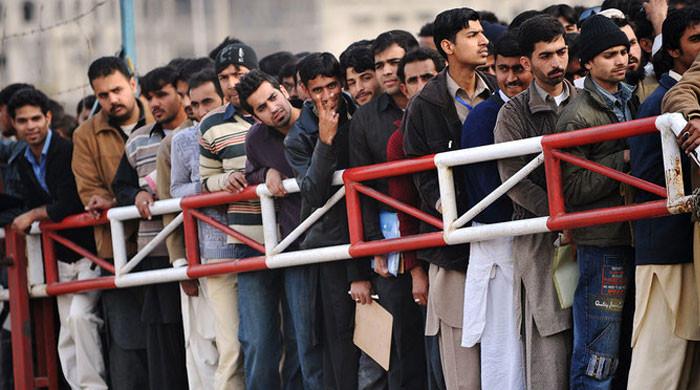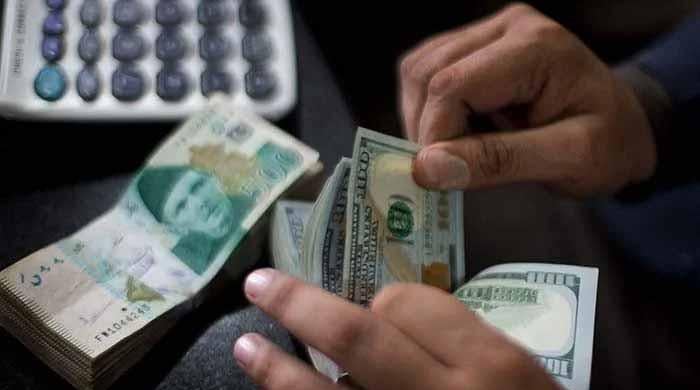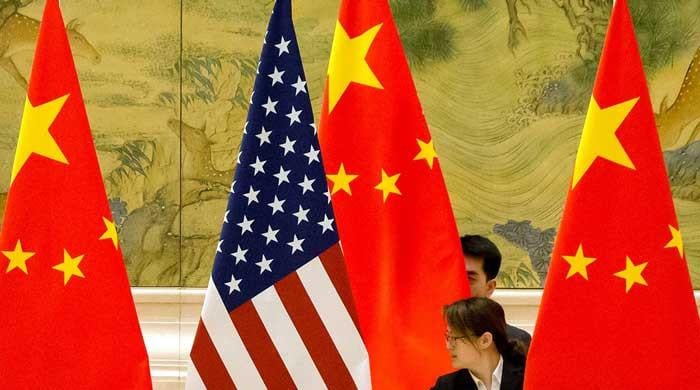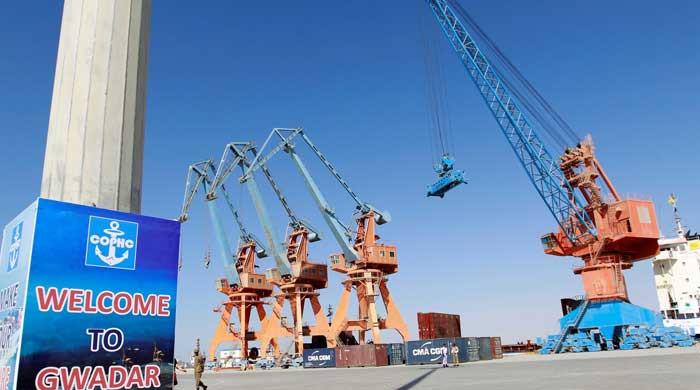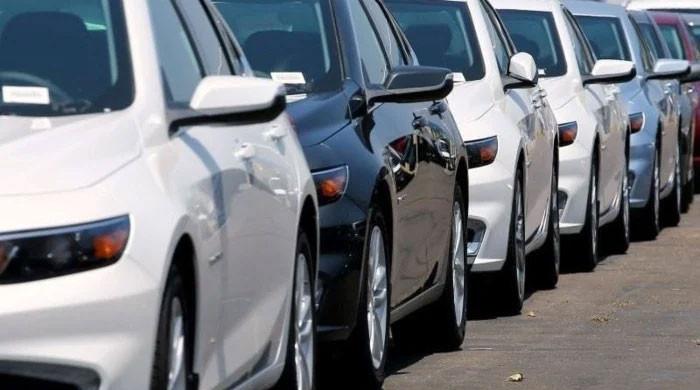Who doesn't want to talk?
Though PML-N, PPP succeeded in overthrowing Imran as PM, they also, in process, ‘buried’ their own ‘Takht-e-Lahore’
January 09, 2025
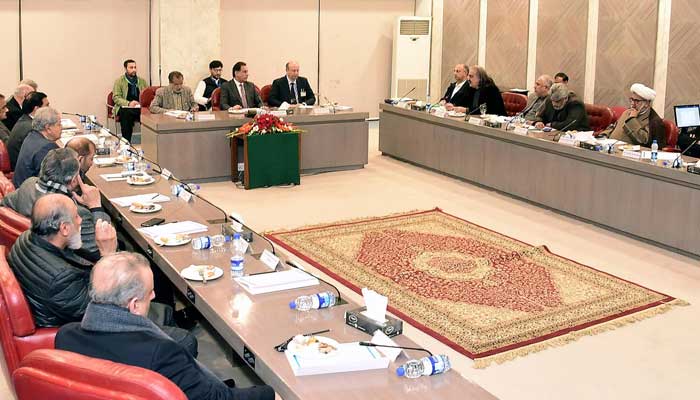
Who doesn’t want a resumption of talks between the government and the opposition? All eyes are now on the Speaker of the National Assembly, Mr Ayaz Sadiq, who is a mediator and has hinted that he would call a meeting if requested by both parties. So far, only two initial rounds have been held in which the government team asked the opposition party, Pakistan Tehreek-e-Insaf (PTI), to submit its Charter of Demands in writing. After some hesitation, PTI agreed, seeking formal approval from its founder and former prime minister, Imran Khan, who has been in jail for the past 15 months. While the key hurdles in the talks have now been removed, there are still ‘ifs’ and ‘buts’ over the outcome. What went wrong, which led to the ‘deadlock’? Both sides blame each other, with verbal attacks from their key leaders.
What was surprisingly missing from the PTI demands, which the opposition negotiation team was supposed to present to the government once the talks resumed, was the core issue of the February 8 election mandate. Instead, PTI Chairman Barrister Gohar, after seeking instructions from Imran Khan, disclosed that the party would demand a judicial probe into the May 9 attacks on security installations, a judicial probe into the November 26 incident at D-Chowk, and the release of all political prisoners, which observers believe includes PTI founder. There were no mention of the February 8 polls, nor any reference to the 26th Constitutional Amendment in the demands.
It was also surprising that, despite the official negotiation team agreeing to arrange regular meetings for the PTI team with former prime minister in prison, such a meeting could not take place, which even surprised the official team members. So, who created these hurdles raises many questions. Statements from some federal ministers, particularly Defence Minister Khawaja Asif, and some PML-N leaders, who are not even part of the negotiations, have also made things more difficult.
Even some remarks from Imran Khan’s official account haven’t helped. However, yesterday’s developments and statements from Barrister Gohar raise hope for the resumption of talks, and now everyone is awaiting the return of the Speaker of the National Assembly, Ayaz Sadiq.
February 8, 2024, will arguably be remembered as the ‘electoral revolution’ in Pakistan when the ‘digitalisation of politics’ overcame the ‘traditional style of politics’ —something that ‘traditional politicians’ and those who matter are not ready to accept. This is the core issue. It was also the first time in the electoral history of party-based elections that ‘independent candidates,’ who were the nominees of PTI, emerged as the single largest group, even though the party did not receive the ‘cricket bat’ symbol for its election and its founder, Imran Khan, was disqualified from contesting, being in jail. Yet, the party cadre managed to mobilise support through mobile and social media platforms, surprising many political pundits.
There is no doubt that, despite being ‘weak or disabled,’ the democratic system led to four consecutive general elections since 2008, each held after five years, including the latter two under the ‘hybrid model.’
When the ruling PML-N and PTI, finally agreed to talk, the move was welcomed across the board. The first two rounds were held in a cordial atmosphere, and both sides expressed satisfaction. So, where did things go wrong, ultimately leading to the deadlock and the bleak prospects for the resumption of talks?
While the government team unnecessarily insisted on PTI’s demands in writing, it also created hurdles in arranging a meeting between the PTI team and its founder, Imran Khan, currently in jail. The government should have facilitated the meeting by shifting him to a guest house, as it has done in similar situations in the past. PTI’s approach also lacked vision and experience in political negotiations. What was wrong with negotiating on just one point, i.e., the February 8 elections? The rest would follow. PTI could have even submitted demands in writing, such as a judicial inquiry into the May 9 and November 26 incidents, alongside the release of political prisoners, including Imran Khan, Shah Mahmood Qureshi, Dr Yasmeen Rashid, and others.
But all of this did not happen in such a tricky political situation, compounded by distrust between the parties. What surprised many were the developments that took place in between, particularly the surprising press conference by DG ISPR, where he should have avoided political questions, and the release of details of the conviction of over 60 PTI workers by military courts, which had previously been withheld due to a Supreme Court directive. The timing caused apprehension within PTI.
Secondly, the war of words continued, which didn’t help the situation and, on the contrary, clearly showed that certain elements from both sides opposed the talks and wanted the current stalemate to continue.
Thirdly, it has also been noted that the absence of any independent mediators, even from other political leaders, contributed to the deadlock. No one stepped in to help both sides.
Political immaturity, or perhaps the lack of will from both sides, further contributed to the present post-negotiation chaos.
Fourthly, the role of Imran Khan’s wife, Bushra Bibi, and his sister Aleema Khan in shaping the party’s political strategy has raised many questions within the PTI hierarchy. Firstly, the two are not on the same page, and secondly, the party’s top leadership is also not on board with their course of action.
While Imran Khan has repeatedly defended Bushra Bibi’s efforts, the fact remains that she came under criticism after the November 26 incident. Neither she nor Aleema Khan holds any official party position, yet media reports suggest that Imran Khan’s wife is engaged in ‘backdoor diplomacy’ to end the long-standing distrust between Khan and the powerful quarters.
In the wake of the November 26 fiasco, the PML-N-led government may feel confident, or perhaps overconfident, that the opposition has few options left for agitation and is unlikely to gain much traction with ‘civil disobedience.’ PTI, too, is divided in the wake of the failed talks. Perhaps PTI is awaiting its ‘trump card,’ which could explain why they have set a deadline of January 30th. However, if such pressure does not materialise as hoped, the situation could change.
Despite all these misgivings and apprehensions, PTI’s strong point remains its electoral support, which remains largely intact, while PML-N circles admit that they are still far from regaining their lost glory. They can’t even afford to hold long-overdue local body elections in Punjab.
Historically, the ‘Charter of Democracy’ signed by former Prime Ministers Benazir Bhutto and Mian Nawaz Sharif in 2006 played an important role in the democratic transition since 2008. Had it been implemented and accepted by both the Pakistan People’s Party (PPP) and PML-N in letter and spirit, we might not have seen the so-called ‘hybrid system,’ which negates real democracy and has led to electoral controversies in 2013, 2018, and 2024.
In the 2013 elections, PPP was unpleasantly surprised, despite having enacted historic reforms like the 18th amendment, which transferred all presidential powers to the parliament. It was wiped out in Punjab, while PTI emerged as the third-largest party and managed to form a coalition government in Khyber Pakhtunkhwa, making strong inroads into Punjab at the same time, replacing PPP.
Both PPP and PTI expressed reservations about the results, but PTI moved ahead and demanded an ‘electoral audit’ of four constituencies.
Had Mian Nawaz Sharif politically handled the PTI protest in 2013 at an early stage, negotiating over the four contested seats and allowing re-elections, PML-N could have gained. Instead, he and his party allowed Imran Khan to lead a 124-day dharna, 24/7 media attention. This benefited the former prime minister and his party, making them a real threat to PML-N, especially in Punjab.
PTI's rise posed a serious challenge to PML-N but, by 2018, the latter remained strong enough to form a government in Punjab. Had non-political forces, such as former army chief General Qamar Javed Bajwa and former ISI chief General Faiz Hameed, not interfered, PTI would not have been able to form a government at the Centre or in Punjab. But this doesn’t mean PTI did not make any headway in 2018. The party made history in Khyber Pakhtunkhwa by not only regaining its position but securing a two-thirds majority for the first time. Its electoral support also grew in other provinces.
The PTI phenomenon caused a serious dent in PPP and PML-N ranks. Over the past 15 years, it attracted a new class of voters, particularly youth and families, and sparked a new political awakening — something the two largest political parties of the country failed to understand. Furthermore, PTI was among the first to embrace and master the changing world of information technology, leaving other parties behind.
Those changes bore fruits in 2024 elections, a result that surpassed the expectations of not only other political parties but also those who had employed tactics to keep PTI out of politics.
Had PML-N and PPP not fallen into the trap of the 'vote of no confidence' in March 2022 and allowed Imran Khan to complete an additional year and a half in office, the outcome could have been different. However, it appears they were allegedly manipulated by General (retd) Bajwa.
Though PML-N and PPP succeeded in overthrowing Imran as prime minister, they also, in the process, ‘buried’ their own ‘Takht-e-Lahore.’ They missed the opportunity to hold fresh elections immediately and paid a heavy price.
Whether it is war or politics, negotiations are the ultimate solution to any crisis. As we are about to ‘celebrate’ its February 8 elections' ‘anniversary’ next month, both the ruling alliance headed by PML-N and the main opposition party, face a ‘deadlock’ that could result in the breakdown of talks.
So, what option is left for both? To resume talks or take a hardline approach, which could lead to further political and economic instability? Pakistan cannot afford another May 9 or November 26, nor a manipulated mandate. The option is either mid-term or fresh polls under an independent Election Commission.
This is the core issue that needs to be addressed as soon as possible, while the rest, including the release of all political prisoners, and the incidents that unfolded on the aforementioned dates, should be tackled legally through a speedy process in civilian courts.
The writer is an analyst and columnist for GEO, The News, and Jang.
X: @MazharAbbasGEO
Disclaimer: The viewpoints expressed in this piece are the writer's own and don't necessarily reflect Geo.tv's editorial policy.




